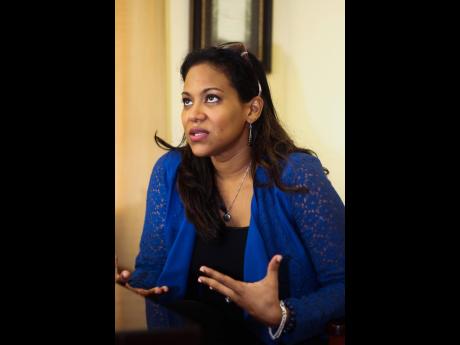Anneshia Welsh | Women political participation critical for women’s rights
The boldness of Senator Dr Saphire Longmore was once again seen in Parliament as she confronted the issue of placing limitations on a woman’s right to report sexual harassment she experienced to a year.
As I applaud the senator for taking on the deep-seated issue of sexual harassment against women and girls, the importance of increasing women’s representation in politics and governance is solidified. It is a well-known fact that although women have formed the majority of the electorate in Jamaica since universal adult suffrage in 1944, they continue to be disproportionately represented in Parliament.
Therefore, the efforts of the Government to appoint Senator Tova Hamilton to the Senate just days ago is a positive move in this regard. The appointment was made while the death of a female Cabinet minister remains fresh in the minds of Jamaicans. As such, it is important to highlight that even as we mourn the loss of the late Minister Shahine Robinson, her accomplishments and representation in governance ought not to be overlooked. Too few women have taken up the task or been given the opportunity to provide substantive representation in Parliament alongside their male counterparts.
Females continue to occupy a statistical minority in Parliament, which puts a heavy burden on the few in governance to provide appropriate representation for women’s issues. As such, the substantive representation of issues affecting women is often low, and these issues are seldom given priority in the national agendas. Several factors have contributed to the imbalance in male-to-female participation in politics.
MALE DOMINANCE
Chief among these are the patriarchal society we live in, which supports male dominance, with positions of power unequally distributed among females at the highest levels. Additionally, based on other social milieus, females are not encouraged to pursue their political ambitions. In some cases, females may also not be interested in politics or are too weak to manage the throes of political campaigning or find it challenging to balance politics and responsibilities in the home. Access to campaign financing is another issue that hinders women’s advancement in the political arena.
Many watched in dismay as Kamala Harris, who is said to have Jamaican heritage, dropped out of the US presidential race late last year, reportedly due to the inability to access funds to continue her political campaign. The aforementioned issues are not unique to Jamaica, and globally, another common occurrence is the heavy reliance of political parties on the support of women.
Women continue to support political organisations and male candidates before, during, and after elections in varied roles with low visibility and recognition including party agents, runners, and election-day officials. Increasing women’s political participation is critical to a country’s democratic governance, and the powers at be ought to contemplate setting policies to facilitate an increase in the number of women being elected or appointed to political positions.
Finally, I laud the efforts of all female in positions of leadership and governance who are providing substantial representation on issues affecting women.
Anneshia Welsh is an attorney-at-law. Send feedback to columns@gleanerjm.com

